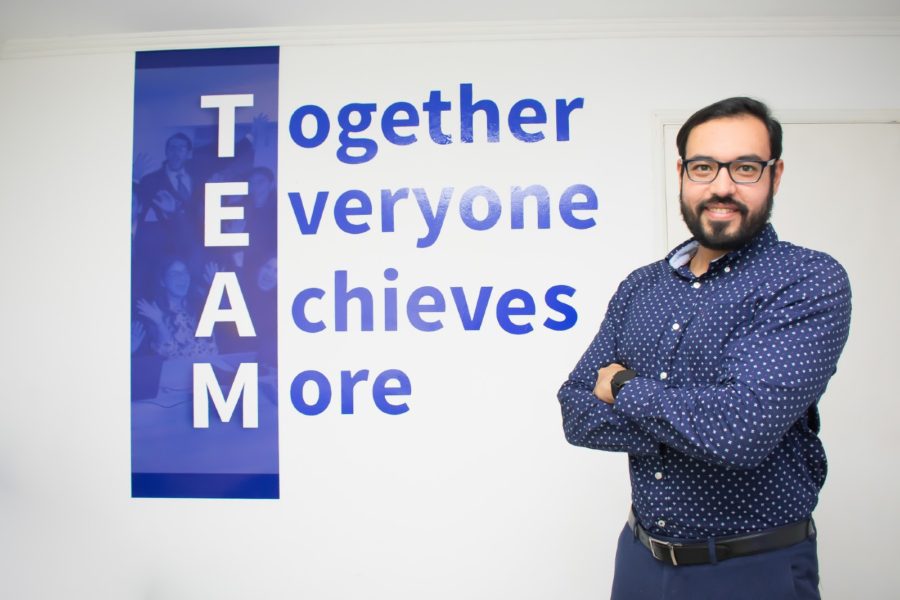The concept of remote working has changed a lot over the years, and recently it’s becoming more and more common for companies to hire remote team members. And it’s actually no surprise because remote workers bring alongside them many benefits for the company and for the employees.
However, these benefits will only make themselves noticeable if your team has an appropriate remote work culture, and your workers can collaborate effectively taking into account that they won’t be working side by side anymore.
And that’s not the only challenge of remote working, you have to make sure that your team works well together, that everyone knows the proper means and methods of communication, that the objectives are clear for everyone, and that they support and trust each other.
Overcome the difficulties of remote working and achieve your team goals by following our 5 tips that your company must follow to make sure you have a good and always improving collaboration between your employees.
1. Make Communication Clear as Water
When working remotely, in-person collaboration or communication is not available, so you have to look for other methods to enhance remote team collaboration. Here’s what you can do to improve communication in your business.
In-person collaboration is not an option for remote workers, so you have to look for other ways to enhance remote team collaboration. Here’s what you can do:

Promote active communication: Since everyone is working remotely, it’s crucial that team members communicate actively.
Otherwise, the employees might start to feel adrift, and left alone, and this might lead to people not fulfilling their tasks on time due to not catching up with their team members.
Make sure everyone is on the same page: Every member of your team should be well-adapted to the common communication channels (chat or video conferencing tools). Remember to have specific communication tools for your whole team, to avoid miscommunication or an overstepping of personal boundaries.
You can never be too clear: When explaining something or sending any information to your team members, try to articulate in simple language and be as clear as possible. Remember that you can never be too precise when explaining something, and it’s way easier to be less precise than you should have been.
Compensate the lack of in-person communication with clear and precise messages.
Understand what and when to communicate: Your employees have a work schedule. Make sure that most communication, especially work-related communication, happens within that schedule. Respect each other’s times and remember that you can always schedule messages to avoid sending them at late hours.
Virtual communication tools: Do research on which communication tool will suit your business the best, in both, culture and needs. And don’t forget to also look for project management tools, they are great for maintaining the world flow of any remote team.
Finally, remember that every team is different, and so are their work processes. You know your team best, so make sure to apply some criteria that align with your business to keep everyone working effectively and on the same page.
2. Set Clear Goals and Objectives
Just as communication, goals, and objectives should also be clear to every team member. And that’s the responsibility of Team leaders and managers.
Collaboration tools are of no use if the team members don’t have a clear goal in mind. Therefore it is crucial to clearly communicate what’s expected and to conduct regular virtual meetings to update each other on the progress of the tasks at hand.
With clear goals and clear communication, the team leader can make sure that all processes are running smoothly. And it will keep like that as long as everyone is on the same page.
3. Promote Supporting Each Other
Supporting each other is the key here to fostering a sustainable, productive, and collaborative team.

In remote teams, this is even more important, and it should be treated as a core value that needs to flow from the company leaders to the rest of the team. Everyone is away from each other, and therefore everyone needs to support each other.
It’s very common for an employee to lose her morale and feel ignored by her colleagues, which leads to her avoiding the essential acts of reaching out and maintaining an open flow of communication to understand everyone’s sentiments.
So, if you notice that one of your team members is feeling left out, talk to her and her team leader to effectively solve the situation.
4. Maintain Transparency
Lack of transparency is one of the primary reasons behind low employee morale, lack of trust, and enthusiasm. It is indeed difficult to maintain transparency when working from home, but that doesn’t mean it’s impossible.
To keep transparency we recommend that for any significant updates, make sure you don’t pass them through team leaders but rather conduct short video chat sessions with the team to disclose. Leaders can also send emails to all the team members on important updates and developments at the end of the day.
5. Make Time for Celebrating
When you work 8 hours a day, 5 days a week for a long period of time, your quantity of workload and commitments can wear you off pretty easily. Therefore, it’s essential to keep some time for celebration too and participate in fun activities to build relationships and get to know each other better.
With the help of team-building activities, you can boost employee engagement and also foster remote team collaboration by teaching them to cooperate through these activities.
Remote working can be either one of the things you love or hate the most about your job. It can be fun, relaxing, and comfortable, or stressful, and lonesome. Let’s try to make the best out of everyone’s remote work experience and follow these 5 tips to be on your way to having a successful team and positive work culture.





